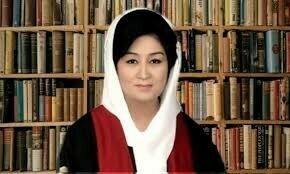PESHAWAR: The Peshawar High Court on Tuesday issued notices to the federal government and Pakistan Engineering Council, seeking their response to a petition against the provisions of the law related to the election of the council’s chairman and senior vice chairman.
A bench consisting of Justice Ijaz Anwar and Justice Fazal Subhan issued the order after holding preliminary hearing into the petition of a professor of the University of Engineering and Technology Peshawar, Dr Khan Shahzada, for declaring that the PEC chairman and senior vice chairman should be elected from each province on a rotation basis.
The petitioner requested the court to declare the PEC Act’s sections 4(1) and (2) and 9, and the PEC bylaw No 23 in conflict with different provisions of the Constitution.
He further sought directives of the court for the government to amend the PEC Act and give representation to young engineers and female engineers in the governing body of the PEC.
UET professor says PEC chief, deputy should be elected from provinces on rotation
Moreover, the petitioner also requested to declare as discriminatory and illegal the different prescribed experience required for chairman, senior vice chairman and vice chairmen.
The respondents in the petition include the federal government through the secretary of the science and technology ministry, and the PEC chairman, governing body and managing committee through the respective secretaries.
Advocate Ziaur Rehman Tajik appeared for the petitioner and stated that under Section 9 of the Act the governing body was the principal executive authority of the council, whereas the managing committee managed the working of the secretariat.
He said that the governing body consisted of 66 members in which 40 members were elected by the professional registered engineers in proportion to the number of registered engineers in each province.
The lawyer said that the chairman and senior vice chairman were elected by the members of the governing body, whereas under the law four vice chairmen were one each from each province by the registered engineers in the respective province.
He contended that presently the number of registered engineers were 170,000 in Punjab, 112,000 in Sindh, 63,000 in Khyber Pakhtunkhwa and 13,000 in Balochistan.
Mr Tajik argued that as majority of the registered voters belonged to Punjab and Sindh and therefore, the chairman and senior vice chairman of the council had been elected from these two provinces and thus the other provinces were deprived from getting elected for these two slots.
He added that the experience required under the law for posts of chairman, senior vice chairman and vice-chairmen was 25 years whereas for members of the governing body was 20 years.
The lawyer argued that the difference in experience was discriminatory and in violation of Article 25 of the Constitution.
He added that the election of the council chairman from Punjab and Sindh due to the majority of registered voters in these two provinces amounted to exploitation and was a violation of the Constitution.
Mr Tajik insisted that it would be appropriate to elect those office-bearers from provinces on a rotation basis.
He also pointed out that the election of members of a province for the governing body by registered engineers of other provinces was also inappropriate and unreasonable.
Published in Dawn, December 18th, 2024















































Dear visitor, the comments section is undergoing an overhaul and will return soon.